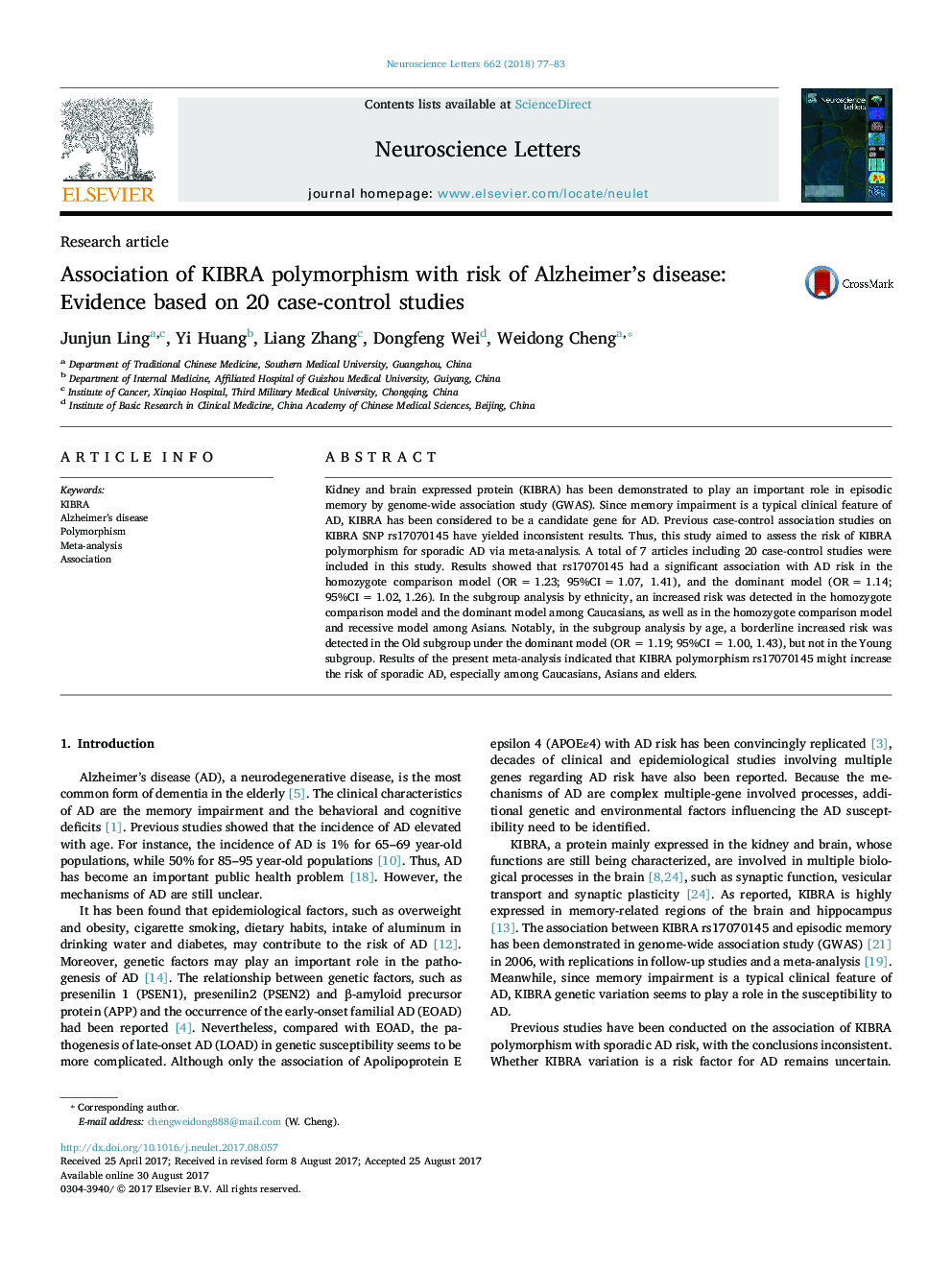| کد مقاله | کد نشریه | سال انتشار | مقاله انگلیسی | نسخه تمام متن |
|---|---|---|---|---|
| 5738045 | 1615037 | 2018 | 7 صفحه PDF | دانلود رایگان |
- The present meta-analysis suggested that KIBRA polymorphism rs17070145 might increase the risk of sporadic AD.
- Ethnicity discrepancy existed in the ethnicity subgroup analyses.
- The increased risk of AD was shown among the elders rather than the young populations.
Kidney and brain expressed protein (KIBRA) has been demonstrated to play an important role in episodic memory by genome-wide association study (GWAS). Since memory impairment is a typical clinical feature of AD, KIBRA has been considered to be a candidate gene for AD. Previous case-control association studies on KIBRA SNP rs17070145 have yielded inconsistent results. Thus, this study aimed to assess the risk of KIBRA polymorphism for sporadic AD via meta-analysis. A total of 7 articles including 20 case-control studies were included in this study. Results showed that rs17070145 had a significant association with AD risk in the homozygote comparison model (ORÂ =Â 1.23; 95%CIÂ =Â 1.07, 1.41), and the dominant model (ORÂ =Â 1.14; 95%CIÂ =Â 1.02, 1.26). In the subgroup analysis by ethnicity, an increased risk was detected in the homozygote comparison model and the dominant model among Caucasians, as well as in the homozygote comparison model and recessive model among Asians. Notably, in the subgroup analysis by age, a borderline increased risk was detected in the Old subgroup under the dominant model (ORÂ =Â 1.19; 95%CIÂ =Â 1.00, 1.43), but not in the Young subgroup. Results of the present meta-analysis indicated that KIBRA polymorphism rs17070145 might increase the risk of sporadic AD, especially among Caucasians, Asians and elders.
Journal: Neuroscience Letters - Volume 662, 1 January 2018, Pages 77-83
